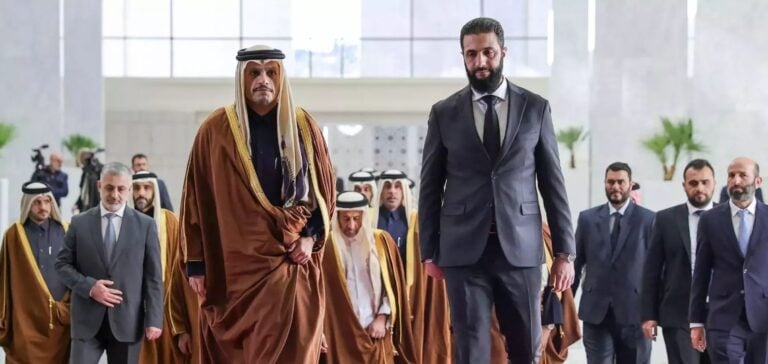Qatar’s Prime Minister, Mohammed bin Abdulrahman Al-Thani, met with the new Syrian leadership to discuss conditions for economic recovery and the rehabilitation of damaged facilities. This initiative follows a prolonged period of war that has impacted the country’s vital installations, including power supply. According to discussions between the parties, the aim is to provide precise technical guidance adapted to the challenges related to the complexity of the network. The local population’s needs are also addressed to ensure access to basic services.
Qatar’s energy commitments and role
The Qatari government has committed to providing 200 megawatts of power to ease the growing demand for electricity. The Syrian National Electricity Company (CNES) plans to utilize these resources to restore part of the grid, which sustained significant damage during the hostilities. This commitment comes with specialized assistance intended to train local staff and optimize distribution management. Recent measures by the United States (US) to ease certain sanctions further facilitate the arrival of foreign funds.
CNES reports that Qatar and Turkey have already confirmed the dispatch of floating power-plant ships capable of producing electricity to meet a portion of the country’s urgent needs. In this regard, coordination between Qatari and Syrian engineers must be strengthened to effectively integrate these floating installations into the existing network. Local authorities anticipate a gradual increase in production as infrastructure is modernized. According to several sources, financial measures may also support public-sector salaries.
Reconstruction prospects
Syria’s new administration, led by Ahmad al-Chareh, expresses the desire to lift the sanctions still in place, seen as a major obstacle to external investments. Local leaders highlight the extensive destruction of roads, administrative buildings, and strategic facilities, making strong collaboration among international donors essential. Infrastructure needs notably concern the energy transport network and distribution systems, critical areas for the country’s stability. Experts argue that a methodical approach is vital for prioritizing the most urgent projects.
International partners, mindful of the viability of their funding, closely examine budget transparency. According to several reports, better coordination of aid is needed to prevent duplication of efforts and ensure effective investment. Syrian officials, aware of these challenges, seek to establish momentum toward the gradual rehabilitation of key infrastructure. The electricity sector, deemed a priority, illustrates the broader issue of restarting essential public services.
The role of regional allies
Qatari representatives have also urged Israel to withdraw from the buffer zone established after the fall of the former regime. This request echoes previous statements by the Syrian government, which opposed any foreign presence on its territory. According to several observers, the question of Israeli withdrawal remains sensitive, with local forces stating they do not wish to open a new front. Regional discussions involve other mediators, including Egypt and the United States, to encourage a peaceful climate.
Regional negotiations have led to ceasefire agreements in several conflict areas, notably in Gaza. Qatar, with the assistance of the Egyptian government and the US administration, is participating in these efforts to reduce tensions and promote reconstruction in the most affected regions. These talks also address financial aspects, vital to maintaining electricity supply in a context of increasing needs. Syrian authorities further believe that multilateral support could accelerate all renovation projects.





















